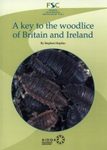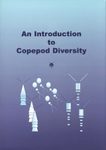About this book
Decapods are a culmination of nearly 600 million years of Crustacean evolution, during which time they have radiated into a variety of superfamilies, families, genera and species which occupy a variety of niches from fresh mountain streams to the abysses of the oceans. This book will fill a gap in the current literature on southern African decapods. Since Barnard published his Descriptive Catalogue of South African Decapod Crustacea in 1950, there have been numerous additions and name changes. This publication updates the taxonomy and includes ecological and fisheries information. In addition, Kensley’s (1981) distributional checklist for the region has been updated and includes large numbers of new species and records for the region, bringing the total number of decapod to over 1000 species. Although not exhaustive, 262 species are featured, some of which are beautiful, some have commercial or artisanal value, both for consumption and the aquarium, and some have important ecological functions, while others are rare or interesting. For each species, there is a photograph, synonymies, common names, a description, ecological information and name derivation (etymology). All the decapod families found in South Africa are described, some new, along with chapters on decapod research history in southern Africa, commercial and artisanal food value of decapods, biodiversity and future research direction.
The book is arranged systematically, as taxonomy is based on phylogeny, starting with the earliest forms and progressing to the most derived and advanced forms, and will serve to stimulate interest and future research into southern Africa’s rich decapod biodiversity, especially at a time when biodiversity itself is threatened by global warming, coral bleaching and habitat loss. It will appeal to people interested in Decapoda, including academics, scholars, students, fishermen, aquarists, aquaculturists, recreational snorkel and SCUBA divers, as well as those interested in conservation, biodiversity, management and governance.
Customer Reviews
Biography
Dr W. D. Emmerson read for his BSc and BSc (Hons) at Rhodes University, South Africa, before starting his career with the Fisheries Development Corporation (FDC) at the Port Elizabeth Museum and Aquarium. He moved to KwaZulu-Natal to continue prawn culture research and receive his MSc, before returning to Port Elizabeth to complete his PhD while working on a marine pollution monitoring project. He then moved to the University of Transkei (now the Walter Sisulu University), South Africa, where he worked as a Research Associate, Senior Lecturer, Associate Professor, Professor and Head of the Department of Zoology. During this time, he conducted National Research Foundation and European Union funded research on mangrove crabs, as well as other projects such as Marine and Coastal Management (MCM) funded work on the subsistence use of spiny lobsters along the Transkei coast, and coral reef decapods at Sodwana Bay, KwaZulu-Natal. He is currently teaching at St Leonard’s College in St Andrews, Scotland.
















![Les Écrevisses de Bourgogne-Franche-Comté: Atlas de Bourgogne [Crayfish from Bourgogne-Franche-Comté: Atlas of Burgundy]](http://mediacdn.nhbs.com/jackets/jackets_resizer_medium/26/261873.jpg?height=150&width=109)


















